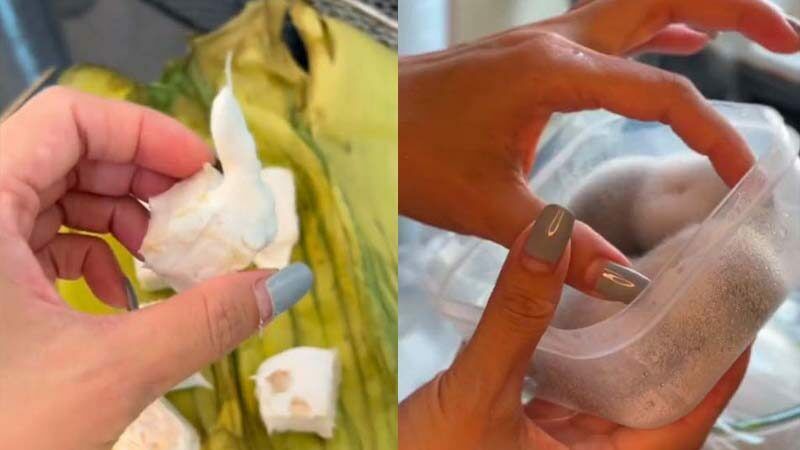Tofu turmoil: Viral furry recipe from China divides opinions on safety and health

A unique recipe for furry tofu, a trending dish from China, sparked a global debate over its safety and health benefits. The recipe, which involves fermentation, was shared by a user on the social media platform Twitter and quickly went viral.
The video showcases a woman instructing viewers on how to prepare furry tofu. The ingredients required include tofu, tempeh starter culture, Rhizopus oligosporus (a type of fungus), colocasia leaves, and toothpicks. Rhizopus oligosporus, a fungus from the Mucoraceae family, is often used in the fermentation process of Tempeh, a traditional Indonesian dish made from fermented soybeans.
The video begins with the woman demonstrating the process of preparing furry tofu. This involves cutting tofu into cubes, boiling them briefly, drying them or roasting them, and then coating them with the starter culture. The tofu is then wrapped in colocasia leaves to prevent air exposure and left at a convenient, moderate temperature for 24 hours.
After this period, she unwraps the tofu to reveal white, fluffy fungus on the surface. After three attempts, the woman decides to ferment the tofu for an additional 24 hours, ensuring minimal air exposure. At the end of 48 hours, the tofu appears fluffier and displays a mix of white and dark grey colours. The female cook in the video claims that the strange colours do not pose a cause for concern.
“The black spores are mature fungi, but it’s still edible and not harmful.”
The woman proceeds to taste the furry tofu, which she describes as soft, sticky, not smelly, and delicious. However, the woman’s claim brought a wave of criticism and scepticism from netizens, with many questioning the safety and hygiene of the preparation process, reported KhaoSod.
Many comments warned that consuming black fungi could be dangerous, prompting the woman to defend her actions, stating that the black colour was due to the fungus maturing and that it was beneficial. However, other comments expressed concerns about the potential health risks, especially for children, while a few supported the woman, stating that such practices were common in other countries.
Latest Thailand News
Follow The Thaiger on Google News:


























